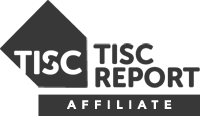It is compulsory for every employee working in Procurement at Beiersdorf to attend an internal Procurement Academy. Training of the Code of Conduct for Business Partners and human rights processes forms part of this.
Since 2020, there has been a Modern Slavery SharePoint on our UK intranet that continues to be updated and promoted as a central source of key information for all Beiersdorf UK employees. It includes our Modern Slavery Statement, year on year improvement and training material.
Future training and education on processes related to the Modern Slavery Act is available to procurement colleagues from industry bodies and networks. Members of the local procurement team attended conferences on combatting modern slavery in 2024, with the knowledge and insights gained then cascaded to the remainder of the procurement team. Furthermore, a presentation on the topic of combatting modern slavery and human trafficking was delivered during a companywide meeting to raise awareness across the wider business to all UK based colleagues. These sessions aim to ensure that all employees understand the importance of ensuring a safe and compliant working environment and our collective responsibility in preventing modern slavery within our supply chains.
In addition, a wider Beiersdorf global initiative was delivered in 2024 that mandated new compulsory e-learnings on Human Rights and Labour Practices for all employees. These trainings focus on educating all colleagues on the risks of modernslavery and human trafficking, as well as ensuring respective labour rights are understood and implemented.
To further our training and education commitments in 2025, we also plan to deliver targeted sessions tailored for our warehouse colleagues at our Distribution Centre in the UK. We recognize the importance of deepening our understanding in this area, as warehouse environments can sometimes present heightened risks of modern slavery. This training will focus on identifying potential indicators of modern slavery and empowering staff to take proactive measures to ensure ethical practices within all our operations.
Looking forward, Beiersdorf remains committed to enhancing employee awareness and understanding of modern slavery and human trafficking. In 2025 we will launch a comprehensive training program on our internal e-learning platform entitled ‘Human and Labour Rights in Procurement’. This training has been developed specifically by Beiersdorf, with the first module focusing on risk profiling and aims to further upskill Procurement colleagues in understanding how suppliers are categorised and evaluated on their risk level. It is also designed to provide colleagues with the necessary tools to foster an informed and mindful approach to supplier management, enabling them to effectively address and mitigate modern slavery risks across the supply chain.

